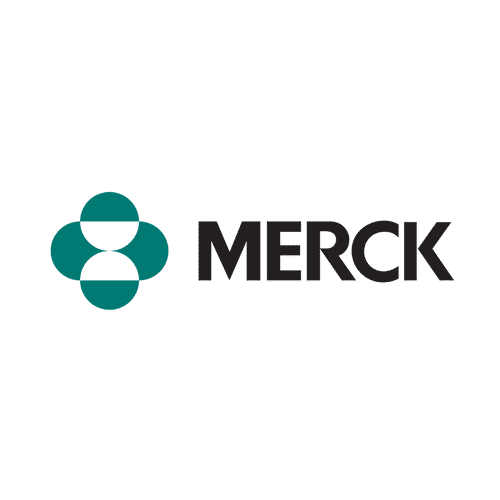
Digital clinical trials

Optimize your clinical trials thanks to innovative digital technologies
Our specialized team explores opportunities to improve clinical trials, and in particular supports pharma players in their innovation projects around the digitalization of clinical studies, from preliminary research phases to real-world observations.
They trust us









The challenges related to digital clinical trials
Clinical trials are a critical step for treatments and their commercialization, but they represent a main challenge for the various players involved:
- Patients in accessing monitoring sites
- Health professionals in participants follow-up, in a highly controlled context and considering logistical constraints in decentralized regions
- Healthcare authorities in controlling the quality of collected information and its projection in a real-world application
- Industry professionals in terms of resources, especially cost and time, related to recruiting of participants to sites.
Generally, therapeutic trials have an environmental impact, particularly related to participant travel and the transportation of drugs and medical devices.
The COVID-19 pandemic equally acted as an accelerator in the digitization of healthcare and brough a significant shift in the conduct of a clinical trial in recent years, which will likely intensify in the future.
However, industries still face numerous challenges in the digital transformation of their clinical studies, including:
The implementation of digital technologies and tools can open the door to new models that allow closer proximity to patients and their real-life conditions. For industry stakeholders, this allows an easier recruiting process of participants, inclusion of under-represented or isolated populations, and the ability to provide a study setting that more closely resembles real-life usage of healthcare products.
What are the subgroups or representative populations to include? What are the endpoints that should be measured? Notably, how can more patient-reported outcomes (PROs), such as patient quality of life, be incorporated to closely reflect their real-life conditions? How can digital methods be employed to improve the patient experience in clinical phase evaluations?
Digitization of therapeutic trials is a lever for reducing greenhouse gasses, especially those that result from participant travel, therapeutic research associates in site selection, and other involved players. However, digitization can also have an environmental impact, for example through the production of medical devices, storage of collected information, and through other means.
Which steps can be digitized, and what is the associated environmental benefit? How can we minimize the impact of digitizing clinical phase evaluations?
After a digital clinical trial, industry professionals have at their disposition a program that allows them to follow their patients over a long period of time, as well as a database for the data collection to be kept for regulatory purposes. The challenge for these professionals is therefore to determine how to use this program to follow the patient beyond the clinical trial, or how to analyze the gathered information to derive value from them, for example in research and development.
How can one successfully valorize the collection of information compiled during therapeutic research? How can the monitoring program be valorized for the real-world use of a product?
Digital technologies can be used to facilitate the measurement of clinical variables in patients, such as the treatments’ efficacy, with a higher frequency than during visits to investigative centers. However, the collected information must meet certain quality criteria, and the production, storage and analysis of these data must be planned and scaled in advance.
What is the necessary quantity of information, and at what frequency should it be measured? What nature of data can and should be collected in order to respect regulations? What system or platform should be put in place for data transfer between patients, health professionals, and the industry, as well as for data storage in the short, medium, and long-term?
The generation of sensitive data requires adequate preparation to ensure patient security and facilitate the acceptance of this new mode of conduct. This includes, among other things, obtaining informed consent from participants regarding the measured information and its uses, as well as the creation of a safety system to avoid data leaks.
How can patients be reassured about the new format and have a clear understanding of measured information? What systems and information exchange protocols can sufficiently protect the participants and their information?
How we support you in your projects related to digital clinical trials
For more than 30 years, Alcimed has supported its clients in a large variety of subjects linked to digitalization, and notably applied to clinical studies. Indeed, we have carried out numerous projects in this domain for international pharmaceutical players.
Our team has also acquired expertise in data science over the years, and our data scientists actively participate in our clients projects, especially those related to the usage and exploitation of collected information, such as in the preparation of digital clinical research or when handling complex datasets in our client mission.
The diversity of our clients, their challenges, and the types of projects that we carry out gives us a global and in-depth understanding of the issues addressed in research and development, and particularly those linked to conducting a clinical study.
Examples of recent projects carried out for our clients in digital clinical trials
Analyzing the environmental impact of transitioning from a traditional clinical development model to a fully digital model
Alcimed helped a leading pharmaceutical player in analyzing the environmental impact linked to their transition initiative towards digital therapeutic trials.
Our help involved defining a model of comparison between different modes of clinical studies, both traditional and digital, by conducting a life cycle analysis focused on different groups of activities: travel and transportation, waste disposal, data production and storage. This model shed light on differences in climate impact, as well as their effects on human health, resource consumption (fossil energy, mineral raw materials, water), and biodiversity.
This project allowed our client to find and put in place improvement strategies to reduce the environmental impact of digital clinical trials worldwide.
Supporting a pharmaceutical player in digitizing their clinical trials via innovative solutions
One of our clients, a pharmaceutical industry leader, wanted to find and prioritize solutions to integrate in the digital transformation of their R&D.
During this project, we identified and characterized several dozen processes based on various criteria such as objectives, therapeutic areas, indications, certification, maturity, and more. After this initial mapping, a selection of particularly interesting solutions was made with our client, with the objective of deepening our understanding of these processes.
In the end, we recommended six devices to our client that were aligned with their objectives and treatment areas, allowing them to initiate pilot studies to kickstart the digital transformation of their clinical trials.
Analyzing the opportunity to integrate digital technologies into Real-World Evidence (RWE) activities of a pharmaceutical laboratory
In the context of creating a roadmap for their RWE activities, a leading pharmaceutical client contacted us in order to map and understand the sources and types of digital information that could be generated.
From analyzing the trends to conducting a case study of similar companies or similar cases from the past, we supported our client in defining a roadmap for the digitization of their RWE activities, and by measuring the key implications linked to this transformation.
Benchmarking and analyzing the digital footprint of 10 pharmaceutical laboratories
One of our clients, a major healthcare player, wanted to understand and compare the digital strategies of the top 10 industrial pharmaceutical companies in order to reevaluate part of their R&D activities. In this context, we analyzed more than 300 initiatives from pharmaceutical laboratories, focusing on the digitization of therapeutic trials.
During this investigation, we identified potential levers for digitizing our client’s strategy and differentiating the pharmaceutical industry leaders based on the magnitude of their initiative and the cultural shift generated by this transformation.
You have a project?
To go further
Healthcare
What you need to know about the Leem survey on the competitiveness of clinical research in France
The Leem 12th survey on the clinical research competitiveness of in France paints a very encouraging picture. So what has changed?
Healthcare
Blockchain in Healthcare: a new technology to revolutionize clinical trials
How can Blockchain in Healthcare help decentralize, make more reliable and transparent the use of data in clinical trials? Blockchain-related applications developed or planned in the healthcare ...
Healthcare
Evolution on the MSL’s role : 4 trends to follow on for the pharma industry
In recent years, MSL (Medical Science Liaison, persons responsible for medical and scientific information in the region) - or RSR in French - have become a key field function for the healthcare ...
Founded in 1993, Alcimed is an innovation and new business consulting firm, specializing in innovation driven sectors: life sciences (healthcare, biotech, agrifood), energy, environment, mobility, chemicals, materials, cosmetics, aeronautics, space and defence.
Our purpose? Helping both private and public decision-makers explore and develop their uncharted territories: new technologies, new offers, new geographies, possible futures, and new ways to innovate.
Located across eight offices around the world (France, Europe, Singapore and the United States), our team is made up of 220 highly-qualified, multicultural and passionate explorers, with a blended science/technology and business culture.
Our dream? To build a team of 1,000 explorers, to design tomorrow’s world hand in hand with our clients.
The objective of a clinical trial is to evaluate the level of efficacy, the toxicity and the tolerance of a healthcare product (such as a drug, medical device, or an innovative treatment) with the objective of obtaining market authorization and subsequently monitoring its real-world usage during its commercialization.
Digital clinical trials involve the use of innovative digital technologies and tools in one or more stages, from protocol definition to analyzing collected information, including the recruiting process of participants and their follow-up.
Digitizing clinical trials improves patient access to centers and trial monitoring by investigators. It also guarantees better quality data and facilitates analysis.
Digital clinical trials provide an answer to many of today’s challenges affecting all clinical trial stakeholders, helping to reduce costs and trial duration for sponsors.


